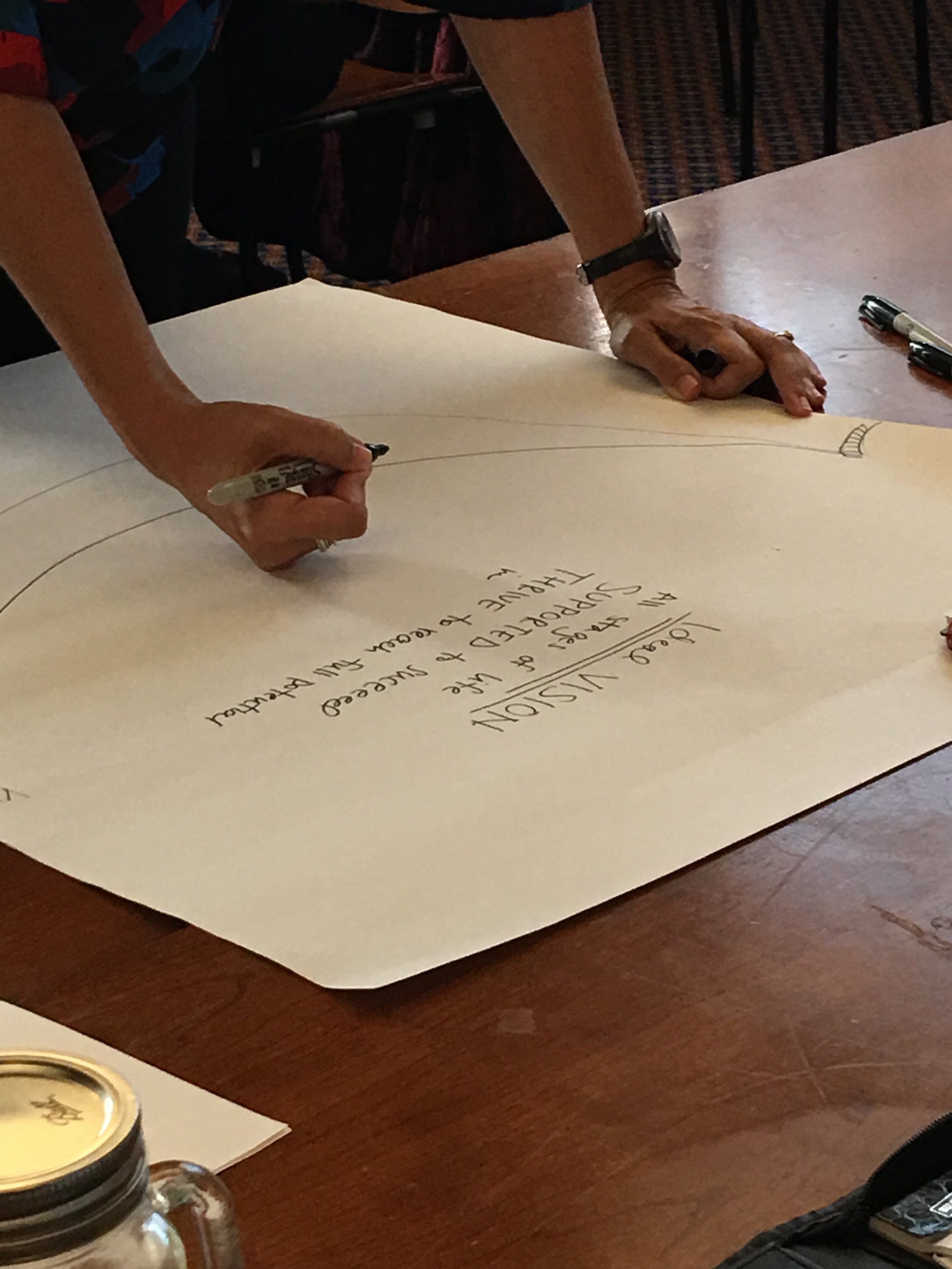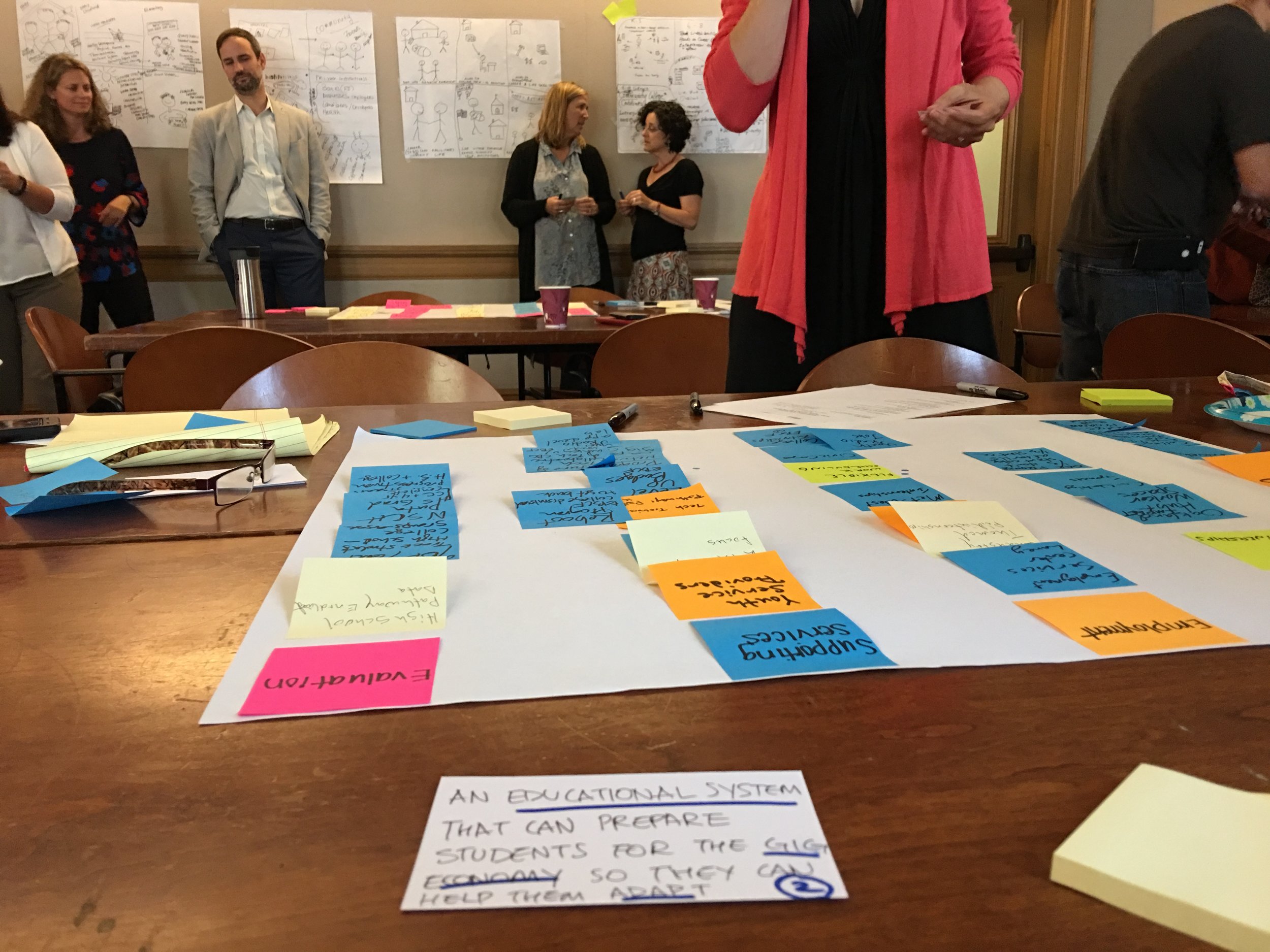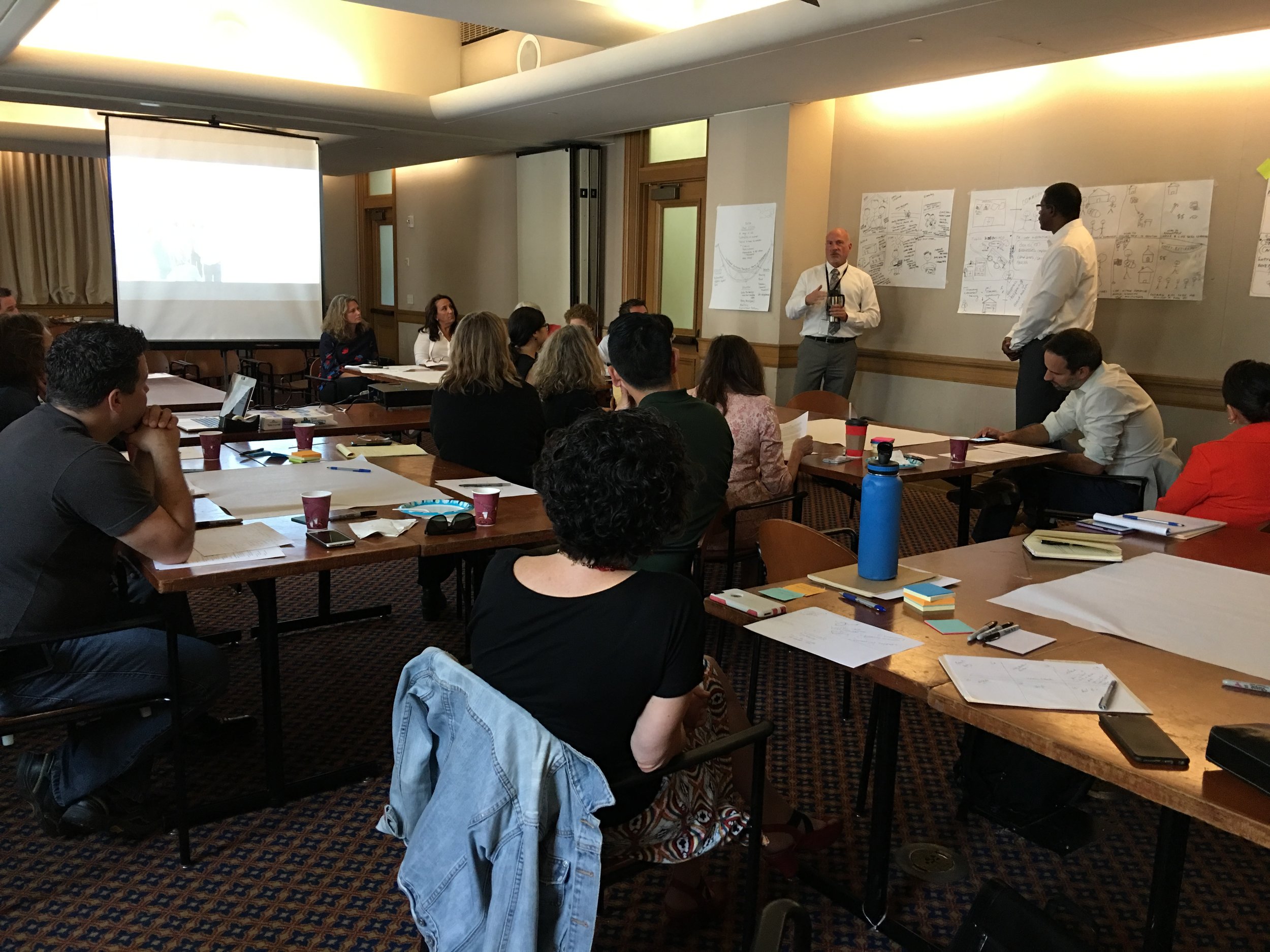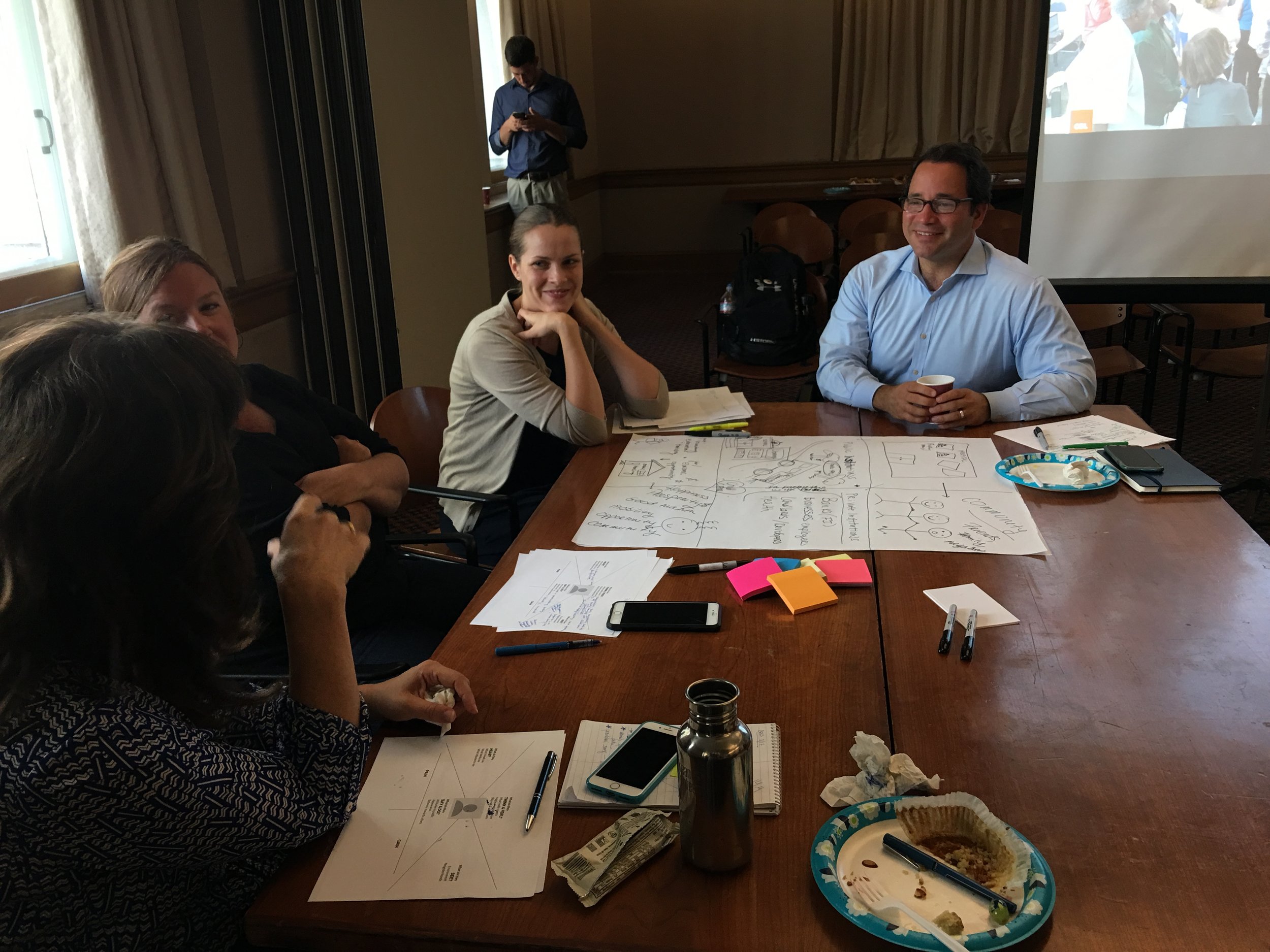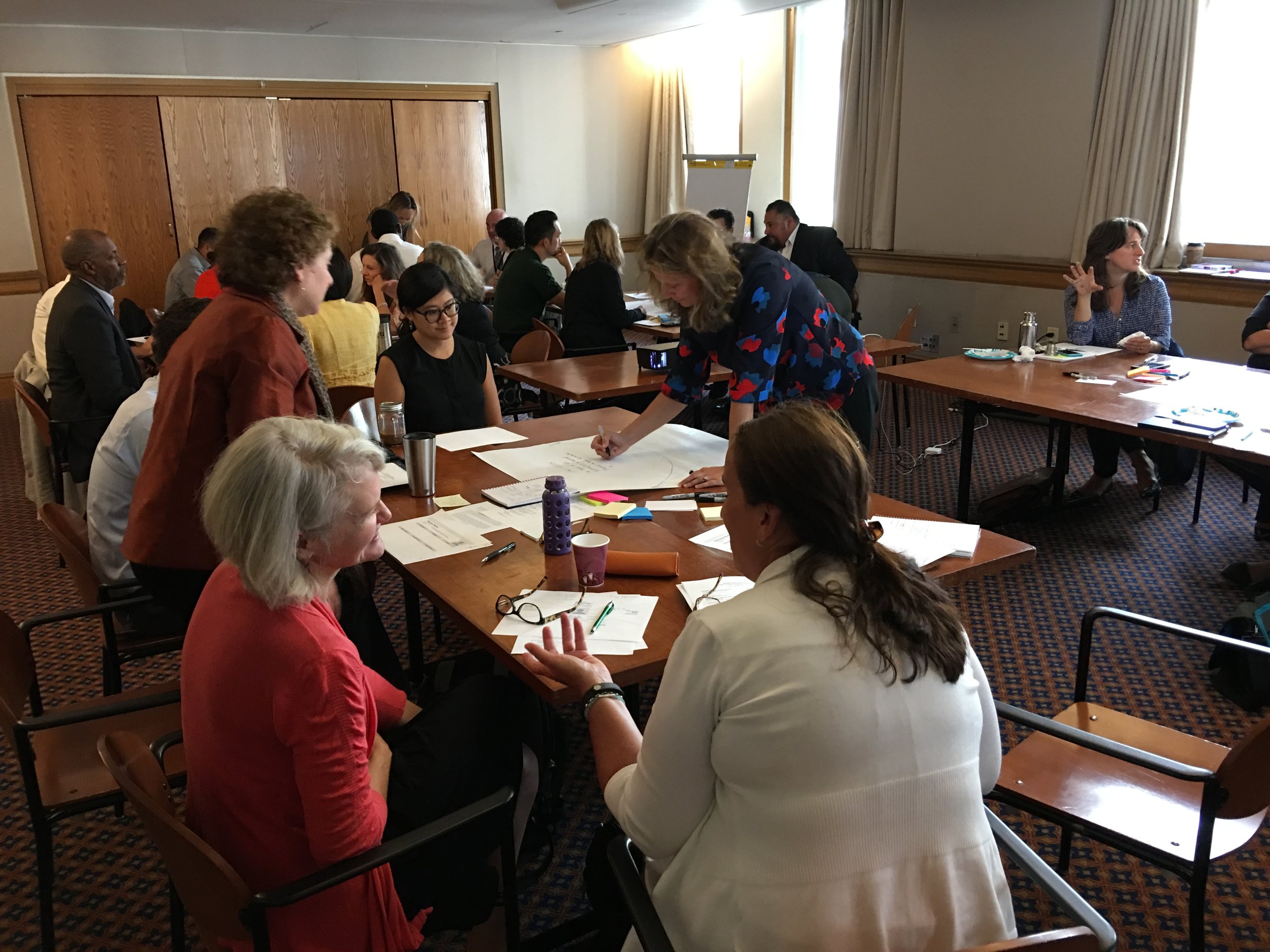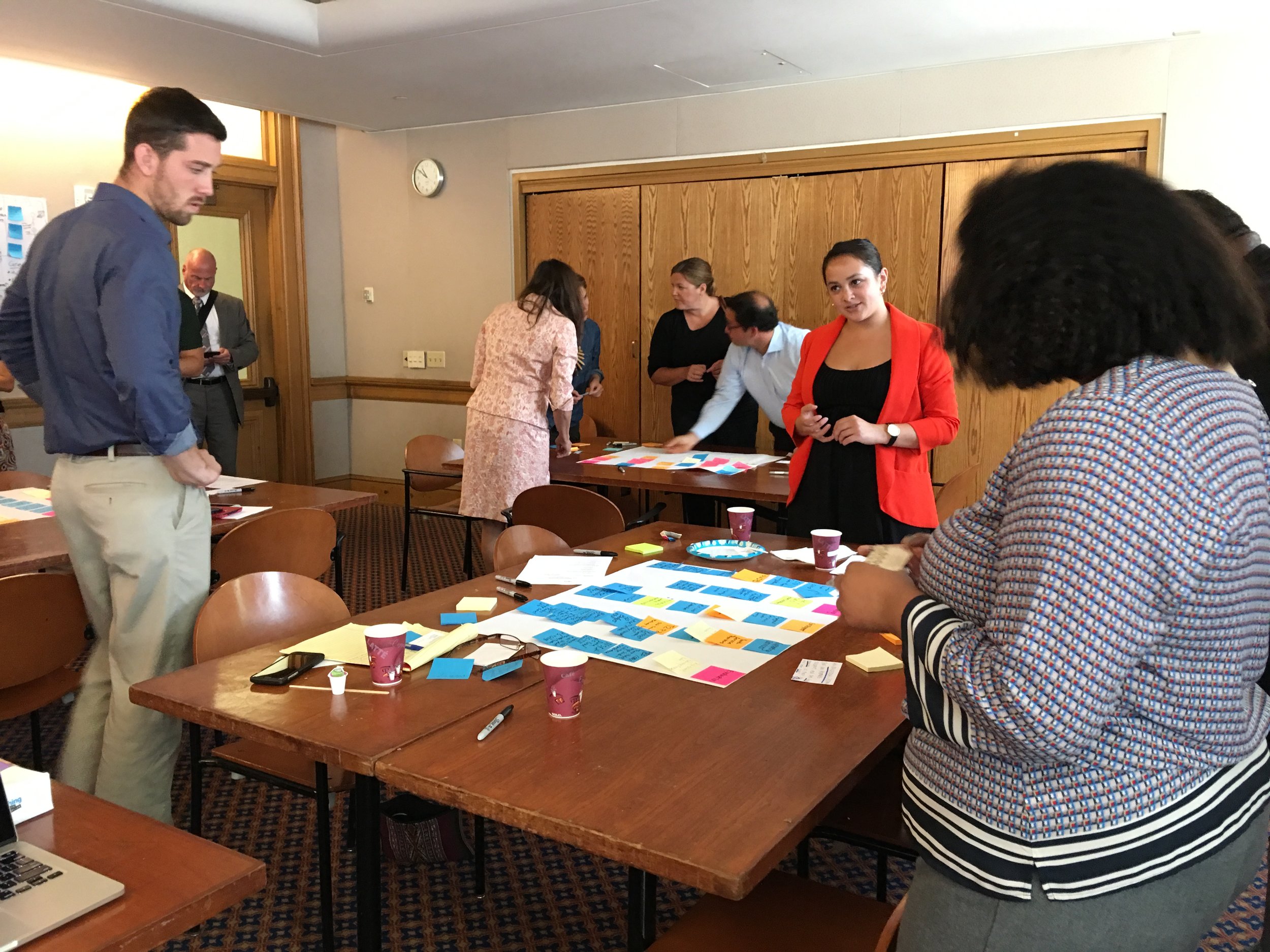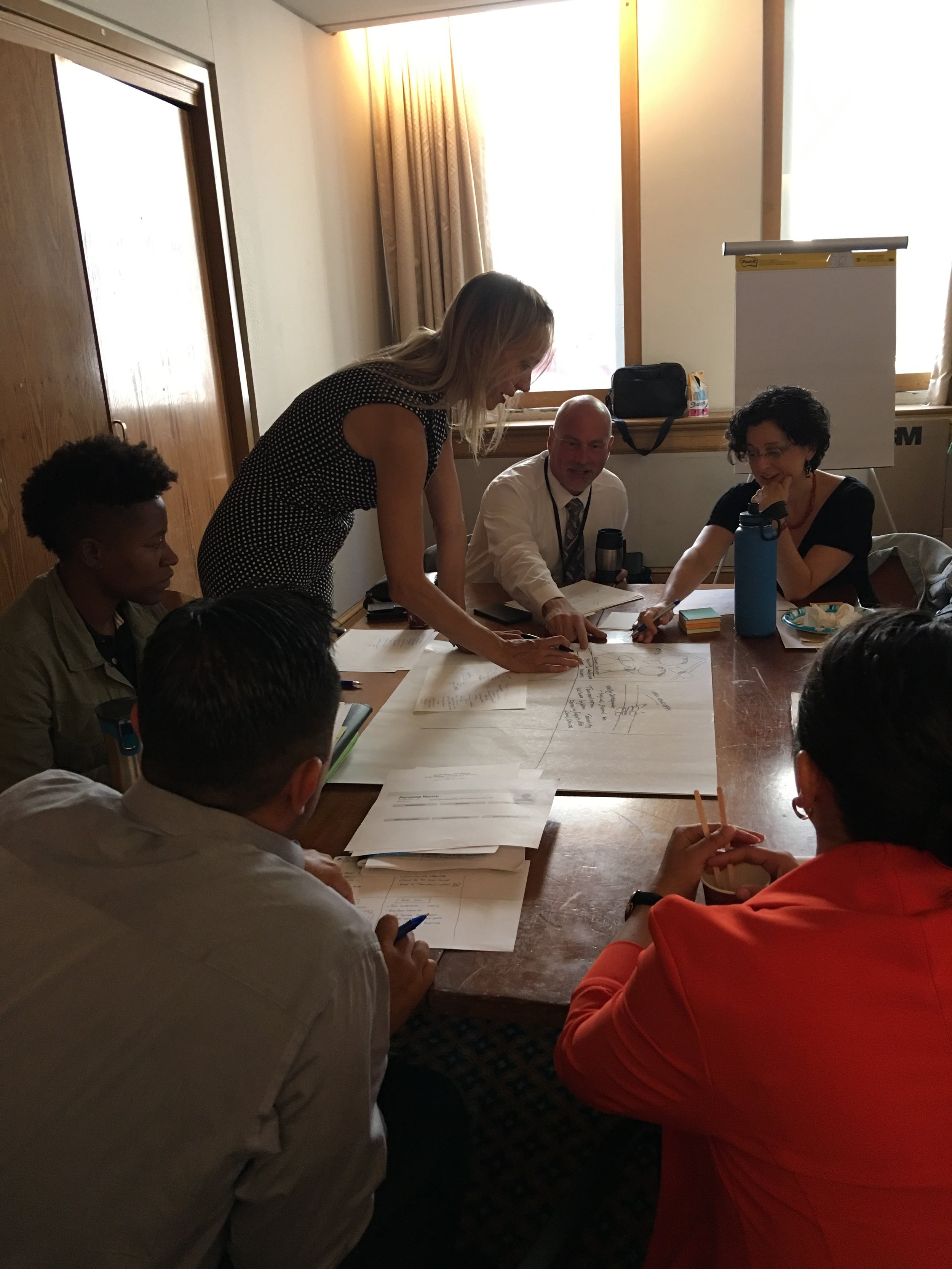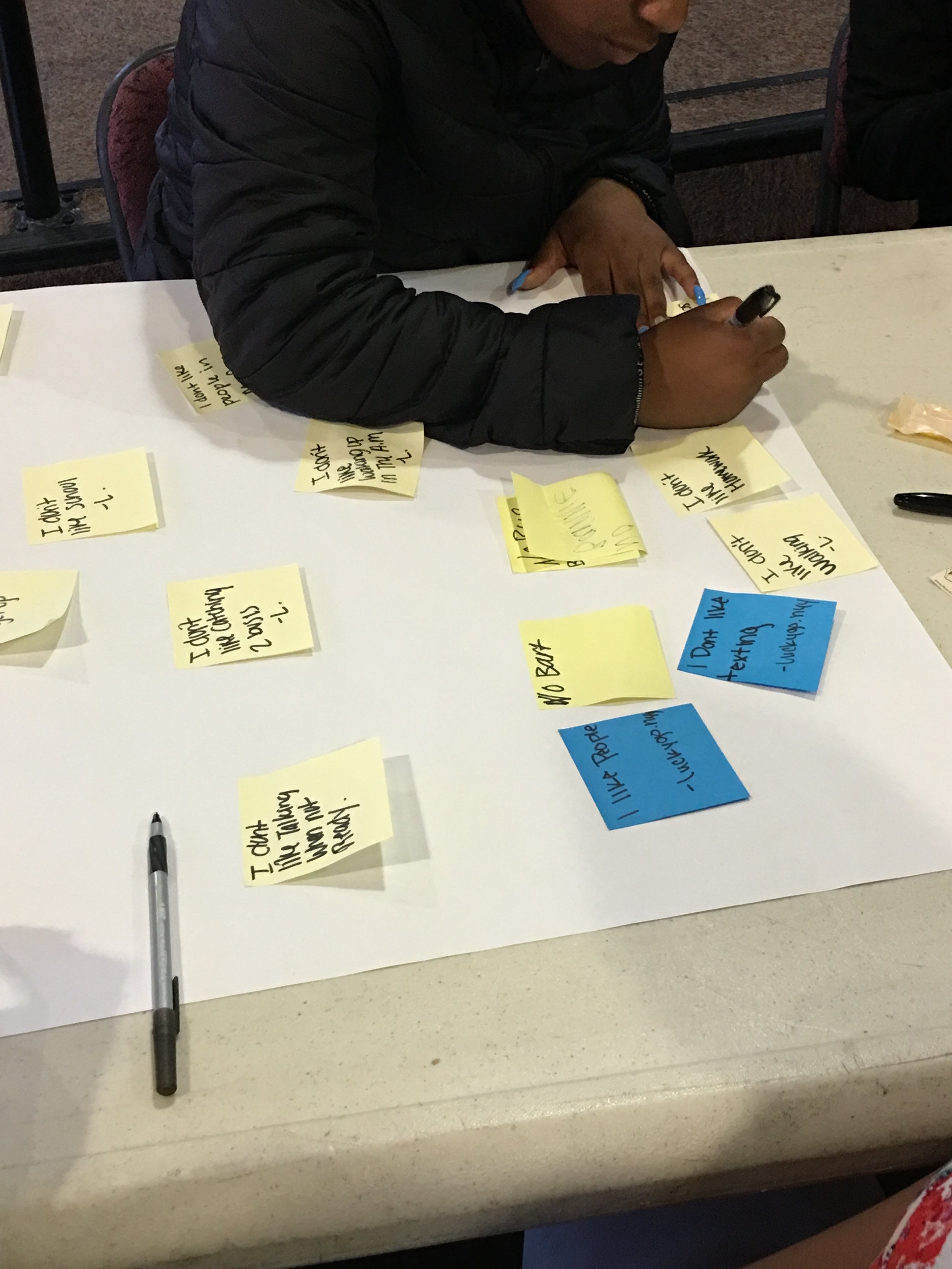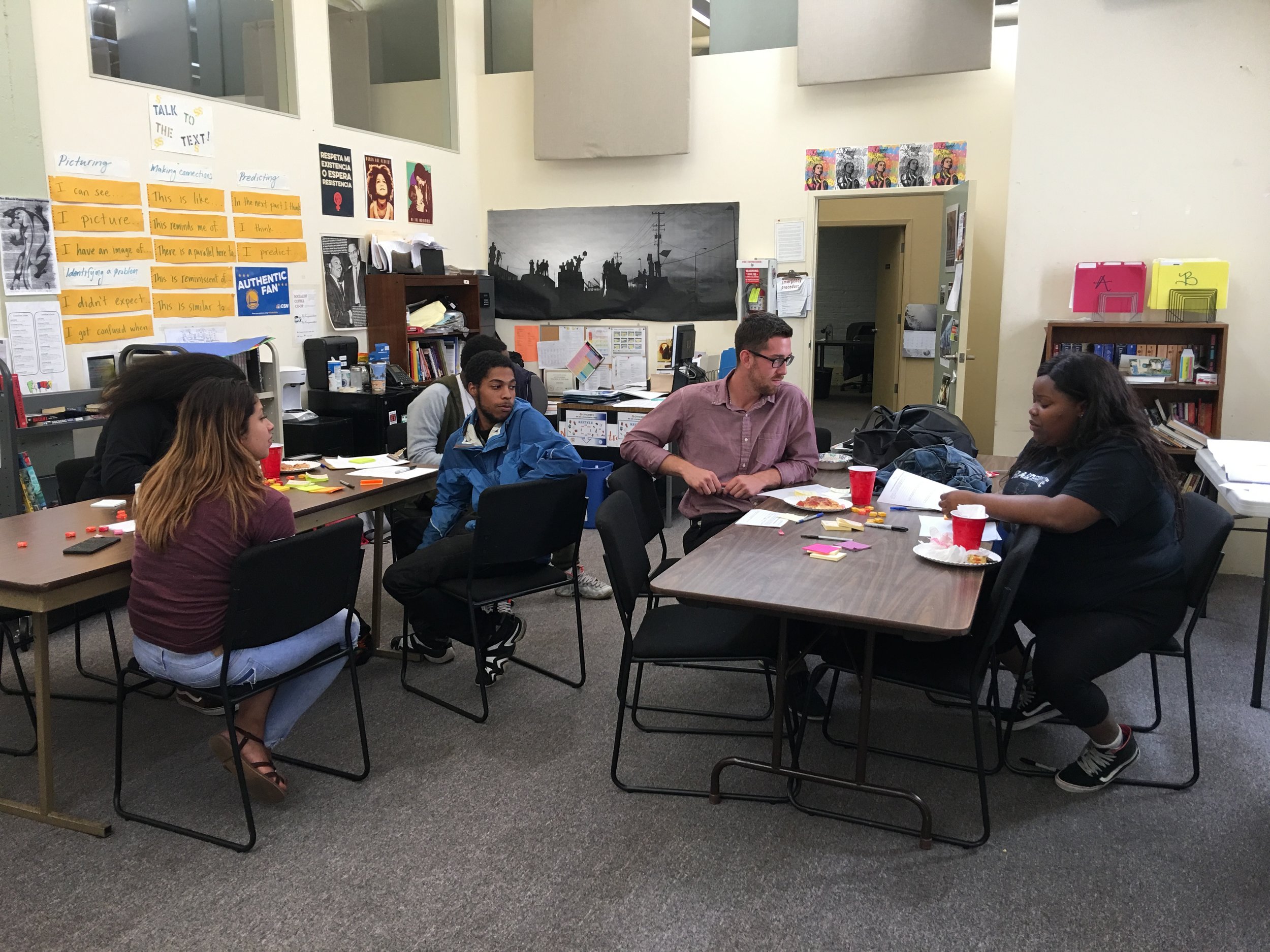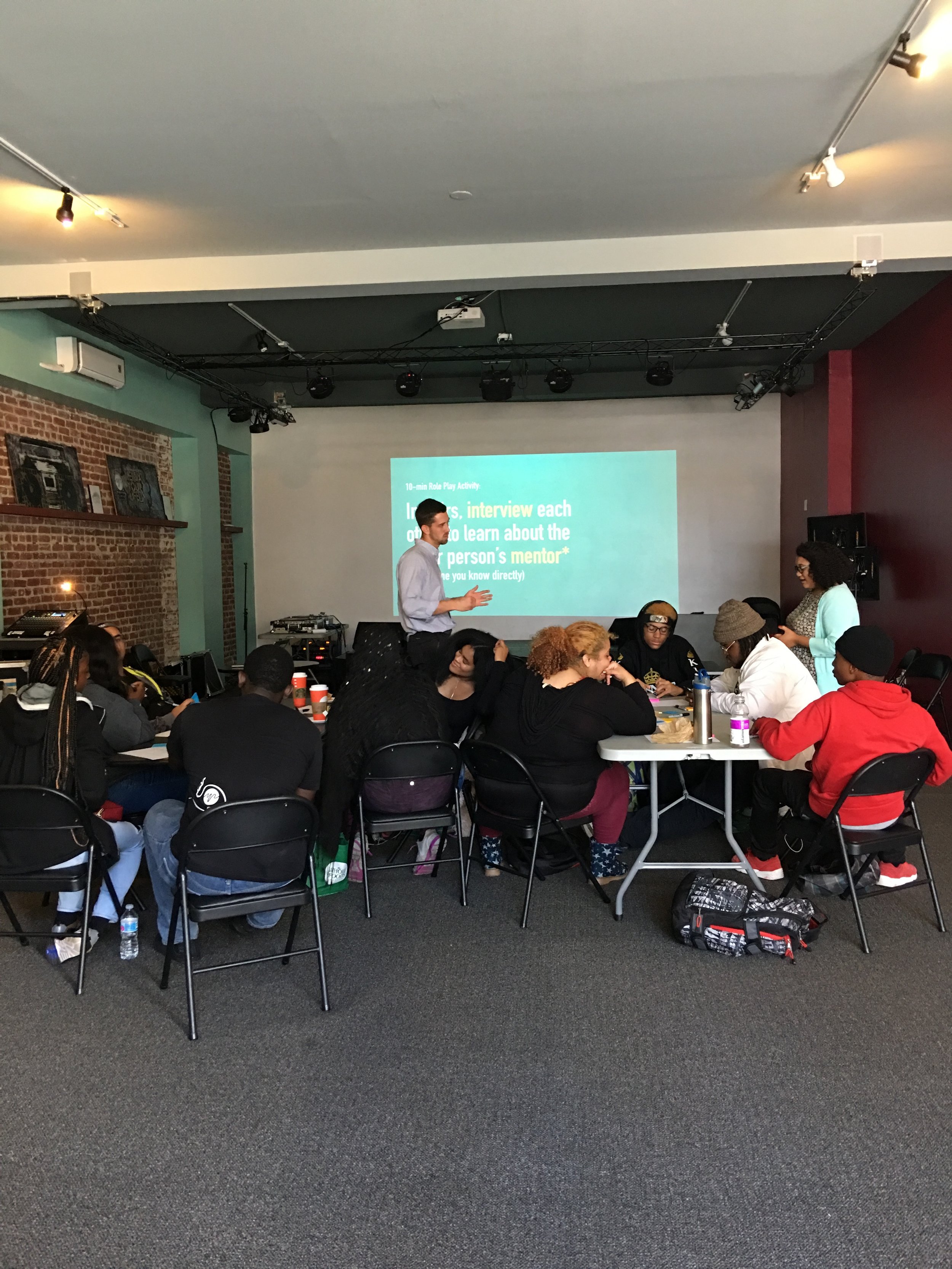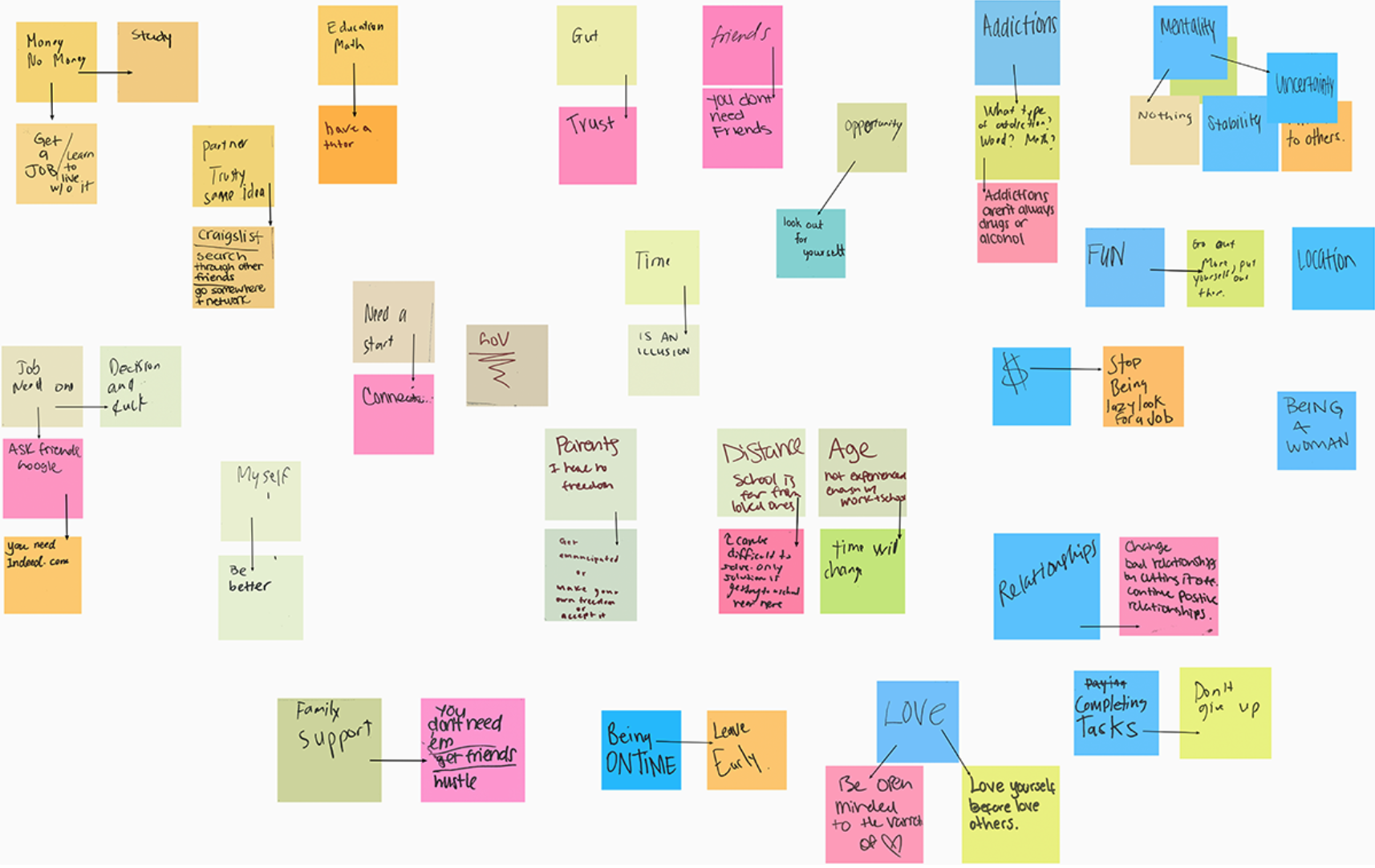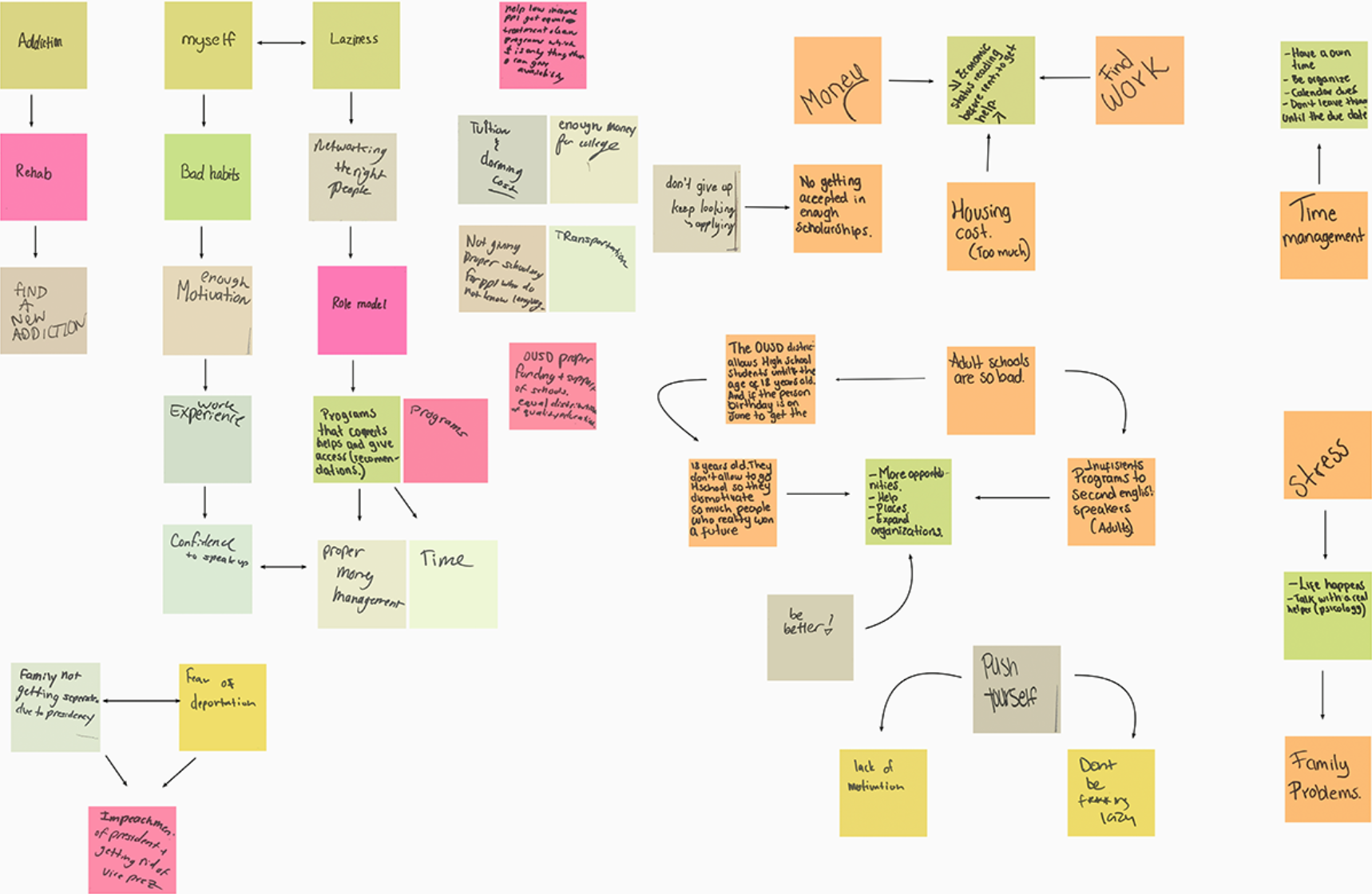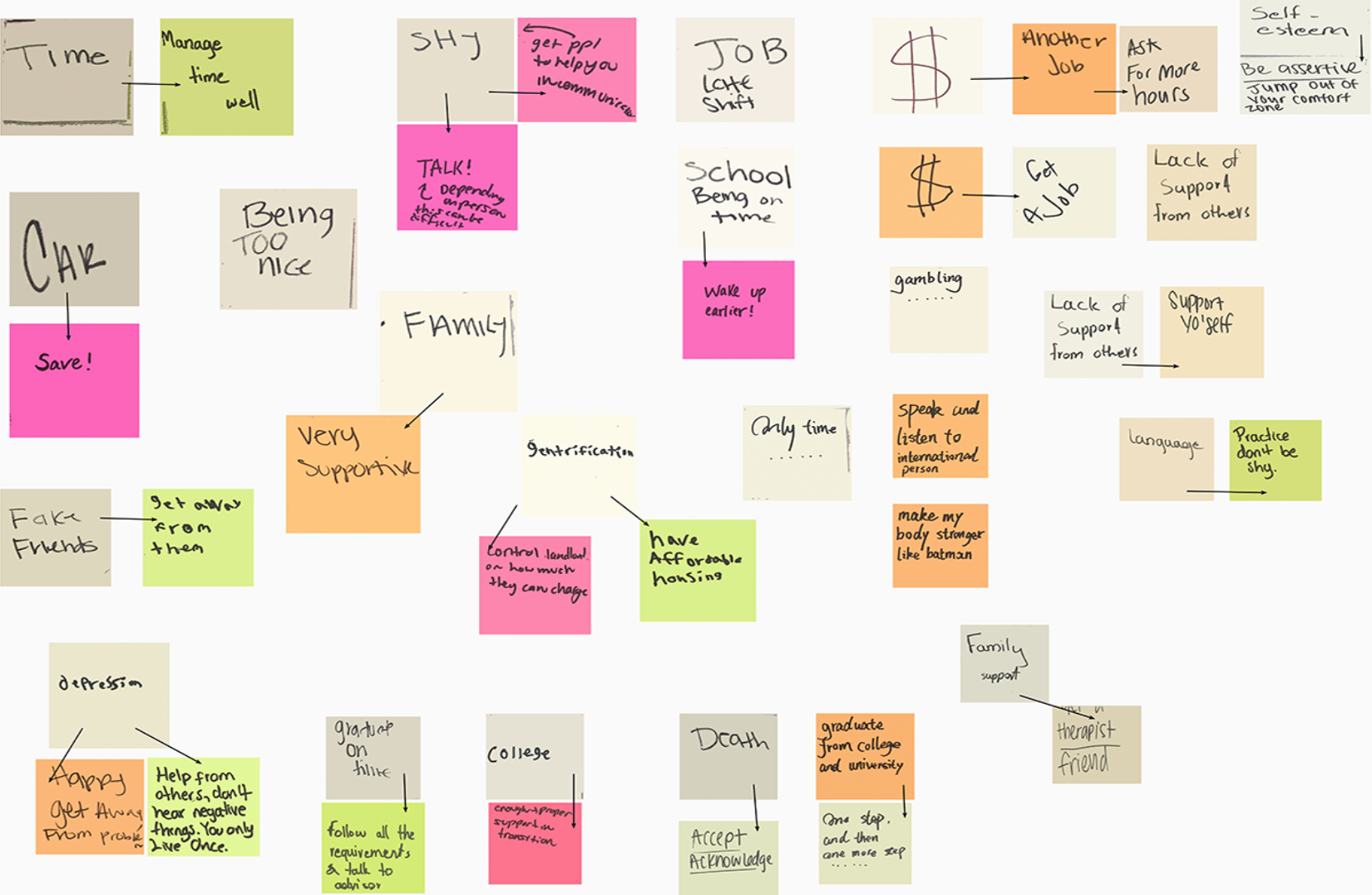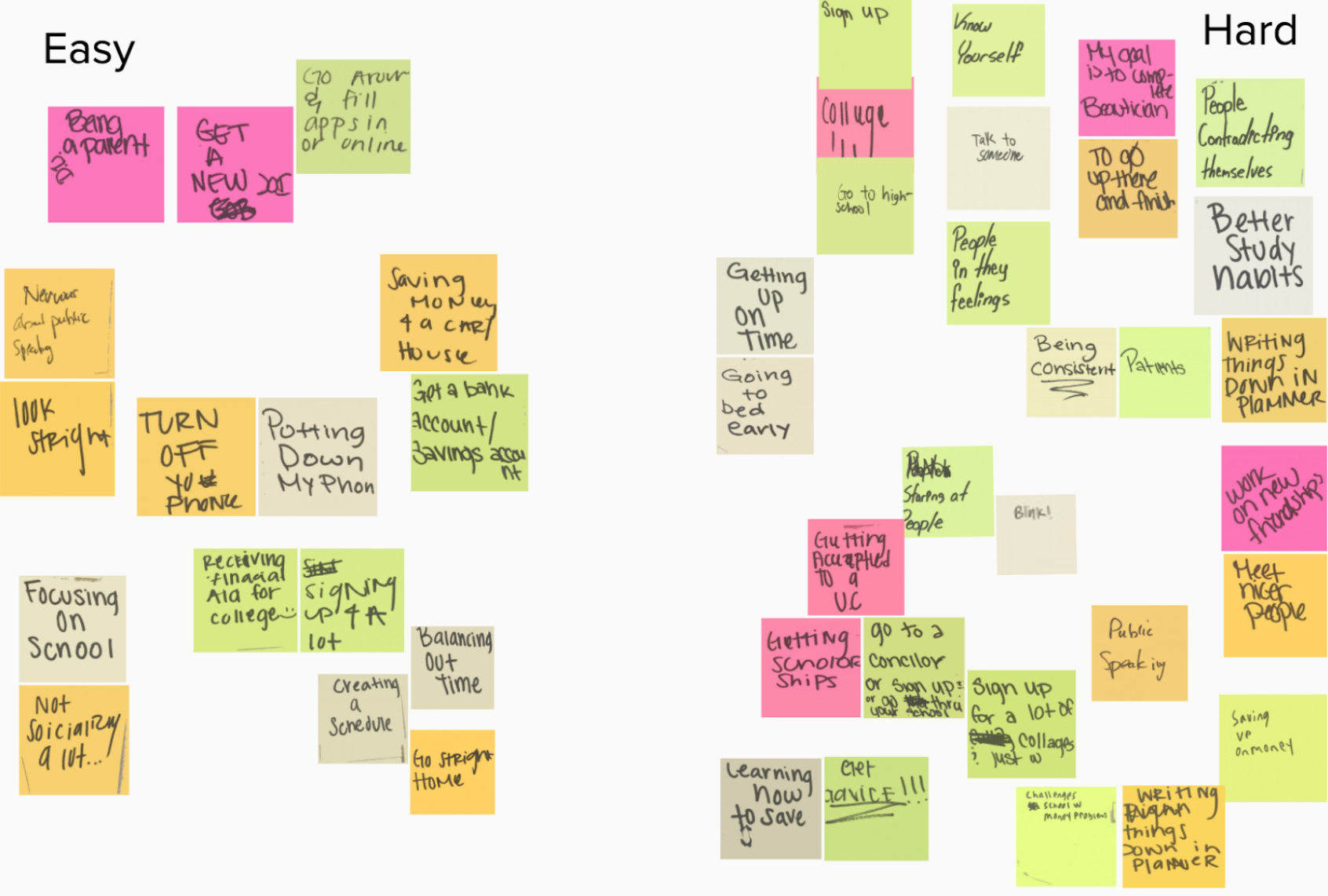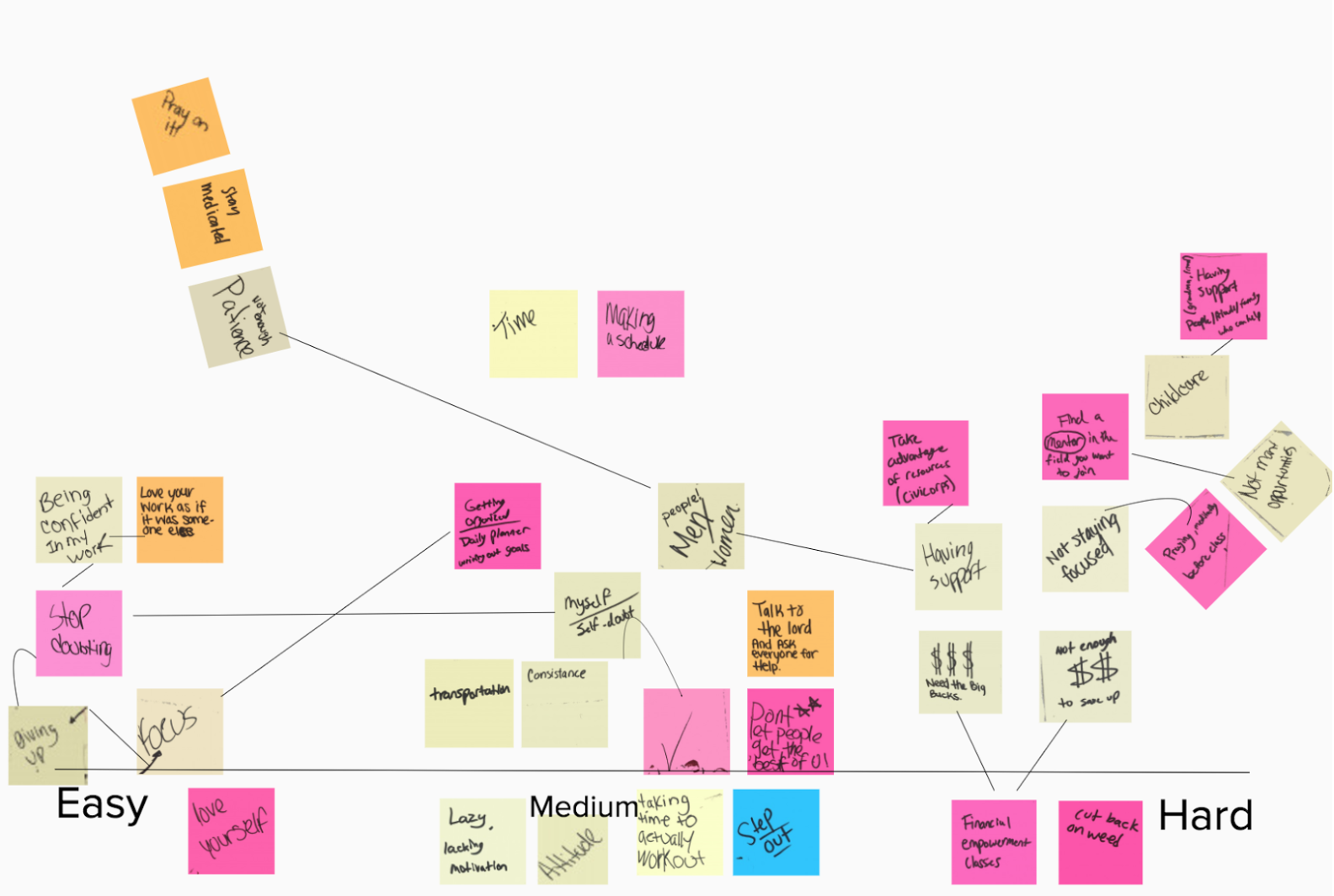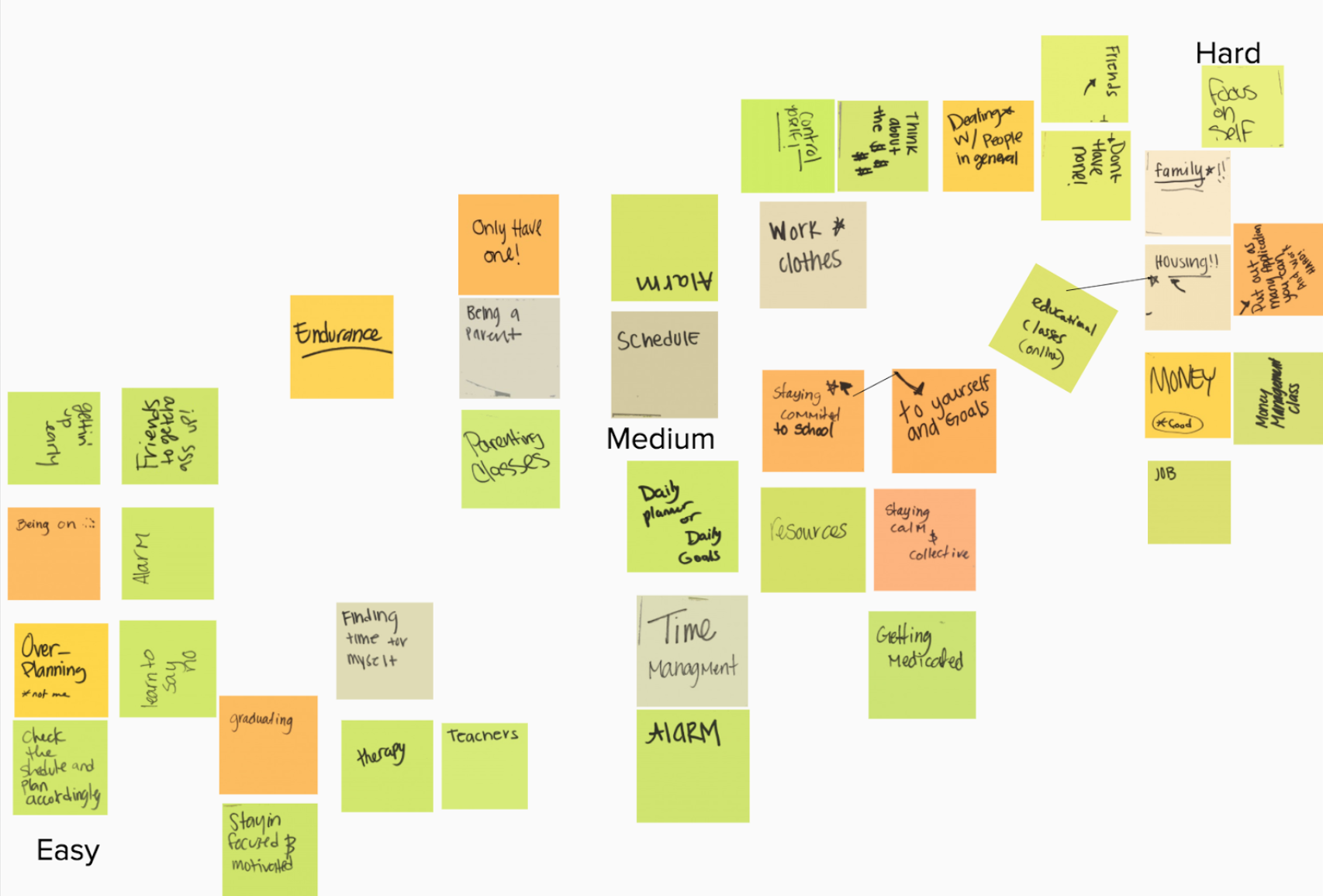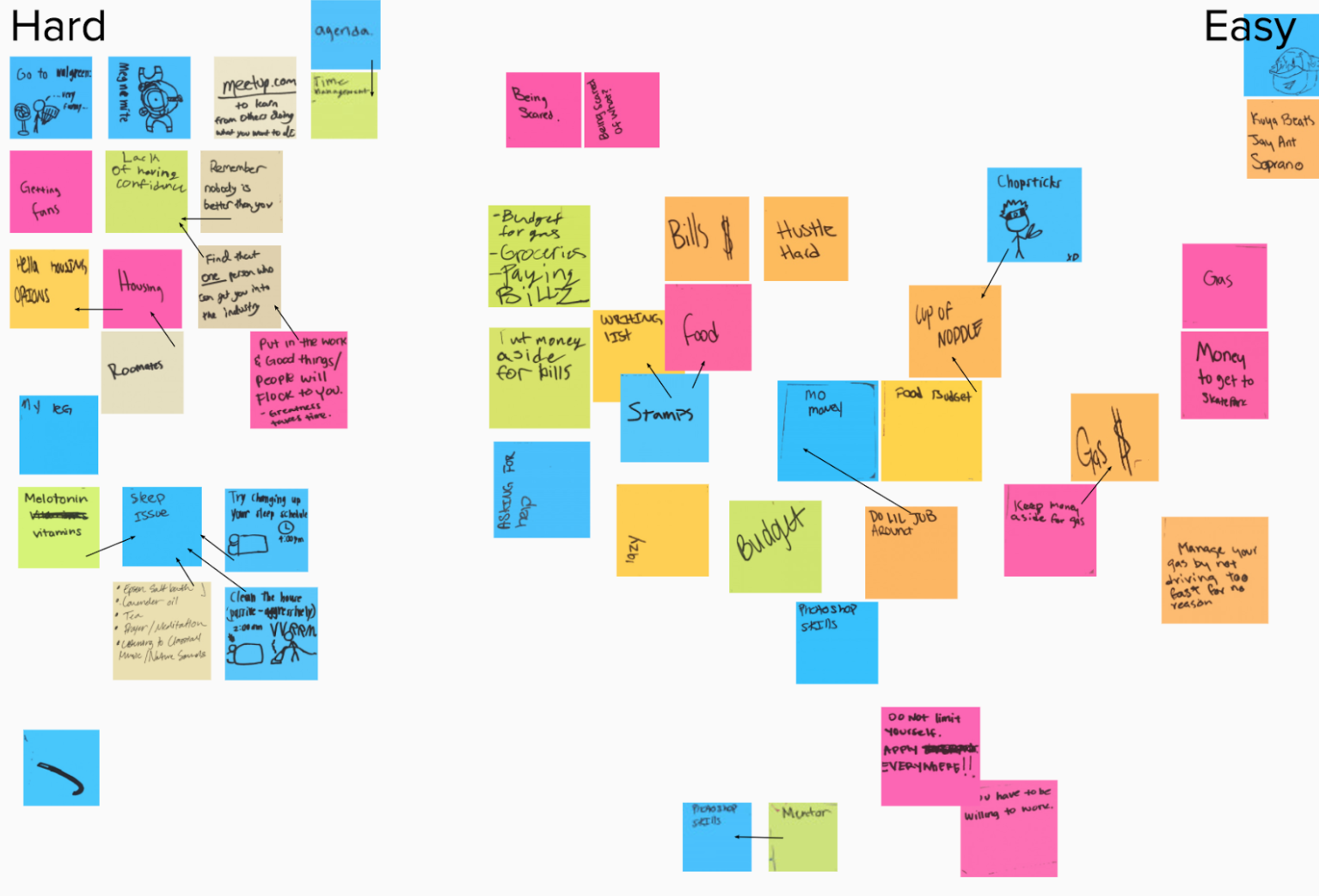Redesigning Summer Jobs
Closing the gap on financial empowerment opportunities for underserved youth
Overview
The City of Oakland has joined forces with the County of Alameda, Oakland Unified School District, and local community organizations via the Youth Ventures Joint Powers Authority (JPA) to collaborate on more effectively directing resources that impact the well-being of over 170,000 families in Oakland. The JPA's five priority action areas, also known as the 'Impact Tables' are focused on health, wealth (earnings and savings), education, housing, and safety. The CDL is partnering with the Wealth Impact Table to co-facilitate the process in which the key stakeholders, in this case, the underserved youth aged 16 to 24, can have better career opportunities through financial empowerment and more transparent and inclusive growth opportunities.
How did we get there?
Scroll for our process...
Our Process
Our potential impact on Oakland youth are 48,482 young people between the ages of 15-24, and additional 101,623 under 15 years of age, which is 150,105 youth combined (about 37% of the Oakland population). That said, the purpose of CDL’s partnership with the Wealth Impact Table (WIT) is to better serve the needs of disadvantaged youth in Oakland by implementing human centered service design methodology. By using this model, the CDL enhances the mission of the JPA "to build collaborative partnerships to leverage resources, eliminate duplication of services, and deliver accessible services to the most disadvantaged and vulnerable populations".
Opportunity: CDL facilitated working sessions with WIT this summer and undertook in-depth research with local youth as well as local youth service providers to determine redesigning Summer Youth Jobs program as a short-term priority action area to improve outcomes for youth.
Process: Workshop with WIT working group; youth focus groups; youth service provider interviews and focus groups; user research report and synthesis; wireframe development; prototyping; community workshops; usability testing; online platform development and implementation.
Delivery: Human centered research and execution of responsive website and online application launched in April 2018.
Version 1.0 of WIT Roadmap for Summer Jobs Redesign
Discovery:
We began by inviting the WIT stakeholders to participate in a blueprinting workshop to understand the collective vision and goals for youth empowerment. The workshop also served to introduce them to the Civic Design Lab process. The initial objectives of this discovery workshop were:
- To understand the general landscape in which Oakland’s youth employment
- To do blue skies storyboarding around the concept of the youth’s future ideal state
- To ground the above ideal states in reality, to identify the community’s existing resources and knowledge gap for relevant support services
Tools: Gamestorming, Journey mapping, User stories, Service blueprinting, synthesis, facilitation, post-its
We first explored various opportunities and services that were already available to youth, by mapping the services offered by those represented in the WIT group. Then we asked the group to create a storyboard around what the ideal state for Oakland youth could look like, developed around five thematic scenarios that emerged from the earlier discussion:
- A parent wanting to provide best educational opportunity for their child
- An educational system that better supports youth that are reentering at a later stage in life
- Creative systems that can be put in place to support youth in the new gig economy
- Asset building strategy for youth financial empowerment
- Cradle to college ecosystem that provides holistic support through all stages of life
Based on this we formed a hypothesis that 1) Oakland's disadvantaged youth are not only missing out on existing opportunities for employment, and 2) that they were disproportionately affected by the changing landscape of employment, so called the 'gig economy'. There was a clear need to better understand how the youth are currently navigating and experiencing the local employment scene, so our team set out to directly engage youth by holding a series of youth focus groups to better understand what barriers and challenges that today's youth are facing.
Every youth has a superpower, so we designed our workshop around their future aspirations
Youth Focus Group - Mapping a Super Hero(ine) Journey
We spent 90 minutes each with a group of youth currently involved with local youth employment organizations to understand their current values, aspirations, as well as their challenges and barriers. Due to the challenging nature of the research topic, we framed the workshop around Joseph Campbell’s 12-step Hero’s Journey to explain that every hero(ine) needs to overcome a set of challenges and important lessons that would train them to become the hero(ine) they aspire to become. Participants were asked to brainstorm their current challenges and barriers to growth, and subsequently they were asked to come up with their own solutions and responses to each other’s barriers in a collective co-design session. We held similar focus groups with youth service providers themselves, to learn about their experiences in coordinating and delivering job opportunities for their youth.
Over the course of the 5 focus groups, we also made iterative improvements to facilitating our conversations with youth to make the activities more engaging and insightful. We will continue involving the youth at subsequent stages of summer jobs program development to make sure that by the time it is launched, it will remain relevant and useful to all those involved.
Key Insights
- Youth Aspirations: In Oakland, youth (ages 16-24) have an idealized version of what their futures may look like. In general youth have an interest in a spectrum of goals and aspirations personally and professionally.
- Youth Success: Many youth in Oakland would perceive themselves as successful when their aspirations are either in progress or attained. However, many youth lack a realistic understanding of the requirements necessary to attain their aspirations.
- Youth Mentorship: Youth in Oakland find value in mentorship and understand the impact a positive mentor may have on their futures, specifically regarding financial security. However, outside of their respective youth employment programs, youth do not have a clear understanding of how to develop and sustain a mentor relationship with individuals who may be an asset to their financial security.
- Barriers to Financial Security: There are a multitude of barriers that prevent youth in Oakland from participating in Youth Employment opportunities and practices that enhance their financial security. These barriers include, but are not limited to transportation, cost of living, lack of skills, and lack of childcare. Additionally, youth noted that motivation levels, family concerns, peer pressure, and self-esteem as barriers to participating in Youth Employment opportunities and practices that enhance their financial security.
- Solutions to Barriers: Youth are creative and flexible in adapting to the barriers they are faced with, and it was more manageable for youth to share adaptations rather than solutions to their barriers. However, exposure to educational resources relating to money management, interpersonal relationship building skills, and esteem coaching were notable solutions to several barriers presented by youth.
Tools: Research, Surveys, Interviews, Data analysis, Workshops, Journey Mapping, User Stories, Synthesis
Co-Design Workshop:
Coming soon...
Implementation:
Coming soon...




